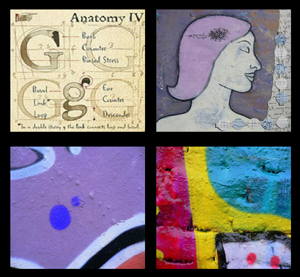Read the book:
https://ccdigitalpress.org/book/storiesDescription
Stories That Speak to Us—a digital collection of scholarly, curated exhibits—is designed to investigate literacy narratives from a number of perspectives: to explore why they are important, what information they carry about reading and composing, why they might be valuable, not only for scholars and teachers, but also for librarians, community literacy workers, individual citizens and groups of people. As the editors and authors collectively suggest, literacy narratives are powerfully rhetorical linguistic accounts through which people fashion their lives; make sense of their world, indeed construct the realities in which they live. Literacy narratives are sometimes laden so richly with information that conventional academic tools and ways of discussing their power to shape identities; to persuade, and reveal, and discover, to create meaning and affiliations at home, in schools, communities, and workplaces, are inadequate to the task. For this reason, the collection focuses on the work of both narrative theorists and literacy educators.
The curated exhibits in Stories That Speak to Us provide analyses of narratives selected by the author/scholars from among the more than 3,500 narratives preserved in the Digital Archive of Literacy Narratives (DALN), a publicly available online archive of personal literacy narratives in a variety of formats (text, video, audio) that recount contributors’ literacy practices and values in their own words. The motif of exhibits and curators is employed in part to suggest the relationship between the narratives “on display” in this particular project and the much larger collection of narratives in the DALN as a whole—the narratives “on display” here constitute less than two percent of the entire archive. The Stories That Speak to Us collection allows visitors to study the literacy narratives in the exhibits directly via links to the DALN, while the essays in this collection constitute something analogous to exhibit catalogs. The individual exhibits examine themes such as “betweenity,” scaffolding, digital divides, ethnolinguistic vitality, ludic literacies, black women’s literacy narratives, the convergence of local and global discourses about literacy, feminism and digital literacy, and transnational “thirdspaces” of literacy. At the end of the collection, we suggest some ways to explore, and provide some tools for exploring, these and other topics in the entire archive.
Promo Media
- Publication date:
March 2013 - ISBN:
978-0-87421-923-4 - APA Citation:
Ulman, H.L., DeWitt, S.L., & Selfe, C.L. (Eds.). (2013). Stories That Speak to Us. Logan, UT: Computers and Composition Digital Press/Utah State University Press. Retrieved from http://ccdigitalpress.org/stories
- MLA Citation:
Ulman, H. Lewis, Scott Lloyd DeWitt, and Cynthia L. Selfe, Eds. Stories That Speak to Us. Logan, UT: Computers and Composition Digital P/Utah State UP, 2013. Web.
- Copyright:
Copyright © 2013 H. Lewis Ulman, Scott Lloyd DeWitt, Cynthia L. Selfe, and Utah State University Press/Computers and Composition Digital Press. Some rights reserved.
For personal noncommercial use. Viewers may not reproduce this ebook or project or display it on another website. This does not affect any of the following rights: fair use rights; the authors’ moral rights; rights other persons may have in relation to either the work itself or how the work is used.
Per U.S. copyright law, readers may, without permission, use limited portions of copyrighted work for the purpose of analysis, review, critique, parody, etc. All such use should be accompanied by appropriate attribution to both the author and the publisher.
Requests for permission to use materials from this ebook or project in new publications should be directed to Utah State University Press on behalf of Computers and Composition Digital Press.
Utah State University Press
3078 Old Main Hill
Logan, Utah 84322-3078
